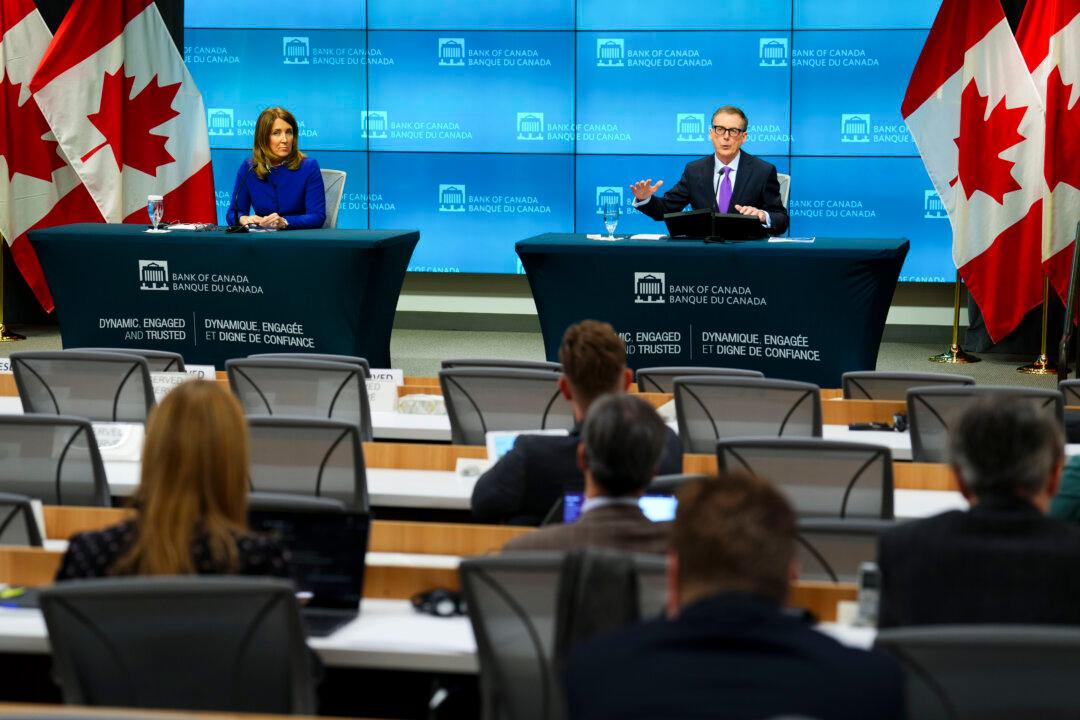OTTAWA—The Bank of Canada stated that it will take a pause from raising interest rates after its quarter-point (25 basis points) hike to 4.5 percent on Jan. 25. It was an unusual move that required considerable elaboration.
Governor Tiff Macklem was quick to pour cold water on the subsequent emerging talk of rate cuts. One consequence of this is higher mortgage costs—especially for variable-rate loans.
“We have raised rates rapidly, and now it’s time to pause and assess whether monetary policy is sufficiently restrictive to bring inflation back to the 2 percent target,” Macklem said in opening remarks at the bank’s press conference.
The BoC has now raised rates by 425 basis points in less than a year.
“To be clear, this is a conditional pause. … iI we need to do more to get inflation to the 2 percent target, we will.”
Jean-Paul Lam, an economics professor at the University of Waterloo and former Bank of Canada assistant chief economist, told The Epoch Times that this muddles the central bank’s message and ties their hands.
“They could have just said, ‘We are still monitoring how inflation is evolving over time,’ and they will take the appropriate actions if needed to return inflation to 2 percent as they’ve done in the previous statement.”
Lam says the bank has already lost a lot of credibility in the last few years, and now it says it may increase rates if any adverse economic developments surface.
“They are throwing out this message that confused markets and provided guidance that they are not likely to follow anyways.”
TD Securities expects the conversation will shift toward the timing of the BoC’s next move—a rate cut.
“While the downward revisions to CPI [consumer price index] introduce some scope for easing in 2023Q4, we continue to look for the first cut in 2024Q1,” according to the Bay Street bank.
Macklem said talk of rate cuts is “premature.”
More Mortgage Pain
For mortgages, the prime rate, which is the basis for most variable-rate mortgages, is expected to reach a two-decade high of 6.70 percent, according to Robert McLister, editor of MortgageLogic.news. He calculates that payments for adjustable-rate mortgages will jump almost $14 a month for every $100,000 of mortgage balance.
Housing market activity has taken the biggest hit thus far from the 400 basis points of rate hikes in 2022. It is the largest detractor from domestic demand in the economy—estimated at -1 percent in 2022 and -0.7 percent in 2023. But by 2024, housing is expected to contribute positively to demand.
The BoC says that interest payments on household mortgages are estimated to climb to 4.5 percent of disposable income at the start of 2023, up from 3.2 percent a year earlier.
This figure is expected to rise further as homeowners renew their mortgages at higher rates.





